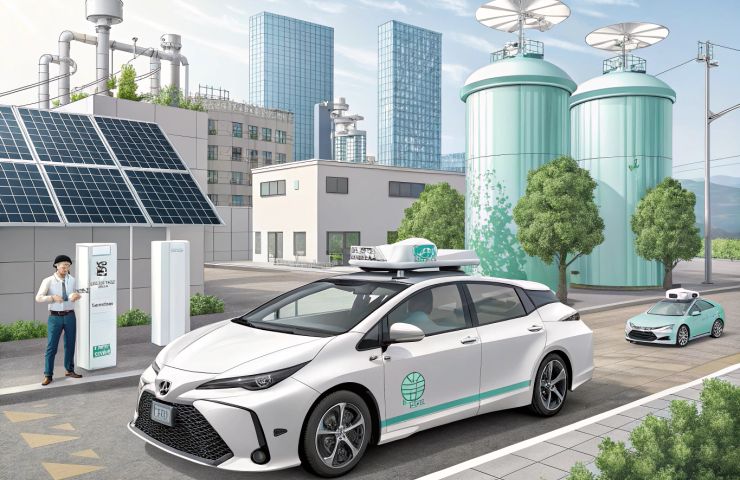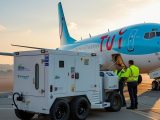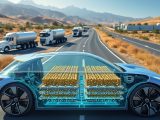
Toyota and Waymo’s Autonomous Tech Partnership Could Reshape the Clean Mobility Market
May 2, 2025Toyota and Waymo are reportedly deep in talks about teaming up to put autonomous driving tech into Toyota’s vehicles—a move that could shake up the clean mobility world and put some serious pressure on Tesla‘s current stranglehold on vehicle software. While it’s not signed and sealed just yet, this collaboration could mark a big turning point in how we think about EVs and autonomy.
What’s Happening
As of May 2025, Toyota—a global automotive heavyweight known for iconic models like the Prius and the Mirai—is in serious talks with Waymo, Alphabet’s cutting-edge autonomous driving firm. The goal? To scale Waymo’s AI-powered driver tech by tapping into Toyota’s global manufacturing network. If it goes through, this deal could be a real game-changer, especially as Tesla currently rules the road with its software-first approach to EVs.
Why It Matters
- This partnership could let Toyota roll out large numbers of vehicles ready to operate with Waymo’s robotaxi platform right out of the factory.
- They’re drawing on Vision-Language-Action (VLA) models—advanced AI tech that interprets sensor data and language cues to make super-smart driving decisions in real time.
- It might also push Tesla to rethink its approach… maybe even consider licensing its Full Self-Driving (FSD) tech if it wants to stay ahead of this kind of collaboration.
- And in the bigger picture, it signals how legacy automakers are moving beyond just building the car to building software-defined vehicles.
The Tech Behind the Wheel
At the core of this potential Toyota-Waymo team-up is a powerful mix of robotaxi software and VLA models. These systems take inputs from GPS, lidar, traffic patterns, and a whole lot of other data sources, then use neural networks to make split-second driving decisions—like a human driver, only faster and more precise.
It’s all built for Level 4 autonomy, which means fully self-driving capability under specific conditions. That’s a big deal for fleets, especially those running on hydrogen fuel cells like the Toyota Mirai, where optimized driving software can help boost efficiency and lower costs.
What’s In It for Toyota and Waymo?
- Toyota benefits by jumping straight into the autonomy game with best-in-class tech—without having to build it all from scratch. That means a faster track to offering robotaxi and transport-as-a-service solutions.
- Waymo gets to scale its tech globally using Toyota’s vehicle platforms—partnering with a major automaker that isn’t trying to do it all in-house like Tesla.
- And for both sides, it continues Toyota’s evolution from hybrid pioneer to a leader in smart, networked, and sustainable fleets—a huge win in a world rapidly leaning toward hydrogen fuel cells and automation.
Tesla vs The World: A Different Strategy
Tesla’s approach has been to keep everything in-house, from batteries to software to vehicles themselves—and it’s working, with over 8 million vehicles already running its platform. But this new deal shows off a very different way forward: team up instead of take over.
Analysts at Morgan Stanley say that Waymo’s willingness to play nice with automakers—and not try to disrupt them—makes it an attractive partner for companies like Toyota. In fact, this deal could open the floodgates for even more tech-and-auto alliances.
Watcher Warnings: What’s Still in the Way
Of course, there’s still plenty to sort out. Regulations around autonomous driving are a patchwork across the U.S., Europe, and China, and while things are moving forward, there’s a long way to go. Issues like data security, fleet deployment in cities, and who’s liable in an accident all have to be locked down.
There’s also a major tech puzzle when you add hydrogen-powered vehicles to the mix. These fleets require real-time coordination to optimize fueling, performance, and infrastructure communication—so the software needs to be smarter than ever.
The Bigger Picture
This partnership isn’t just about plugging AI into cars. It’s about building tomorrow’s cleaner, smarter transport systems—and hydrogen fuel cells are a big part of that puzzle. While this deal doesn’t focus directly on hydrogen production or fuel cell technology, it absolutely connects the dots.
If Toyota and Waymo shake hands and move forward, the result could be a new kind of auto industry—one where manufacturers don’t just churn out hardware, but create entire ecosystems for autonomous driving, clean energy, and digital intelligence.
Who They Are
Toyota is Japan’s automotive giant, known not just for leading the hybrid revolution with the Prius, but also for pushing boundaries in fuel cell technology with vehicles like the Mirai.
Waymo, part of the Alphabet family, is a pioneer in autonomous tech. From operating commercial Waymo robotaxi services to designing high-level AI for OEM partners, it’s one of the top players shaping the future of mobility.



 With over 15 years of reporting hydrogen news, we are your premier source for the latest updates and insights in hydrogen and renewable energy.
With over 15 years of reporting hydrogen news, we are your premier source for the latest updates and insights in hydrogen and renewable energy.
Yeah Toyota’s Mirai is iconic. No one wants it and where do you fill up at 3 tomes the cost of gasoline. Can’t wait to see a Lexus with all those hideous lidar attachments and who is going pay an extra $70 grand for this. Just wondering if it’s another Toyota lie just to make headlines.